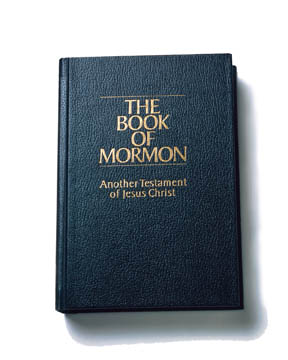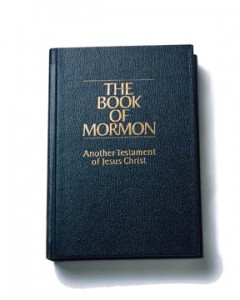One thing that I think everyone suffers with and is guilty of at some point in their life is pride. As the prophet Ezra Taft Benson said, “Pride is a sin that can readily be seen in others but is rarely admitted in ourselves.” Ironically, right now I am admitting pride, but admitting it isn’t enough to reconcile it. Pride can manifest itself in a variety of manners. Of course its simplest form is when we think better of ourselves than others, but sometimes we think better of ourselves than God. Often times we face a crossroads, with the decision to do good or to do bad. Pride can very easily manifest itself here, rationalizing decisions we are too proud to see negatively. This week in our Book of Mormon class at Brigham Young University, we continued our reading of the second book in the Book of Mormon, Second Nephi. Here we read the warnings of the prophets and prophecies to save ourselves and to humble ourselves and accept Jesus Christ as our savior.
In 2nd Nephi Chapter 12, Isaiah, a prophet of the Old Testament who lived in the 8th-century BC, is quoted repeatedly by Nephi, a prophet, founder of the Nephite people and author of the first two books in the Book of Mormon. While Nephi and most prophets speak a bit more straightforwardly, Isaiah speaks very poetically. Isaiah’s form of speech, in fact, is commonly termed as Jewish (Hebrew) poetry. An important thing to note is that Mormonism is indeed a Christian religion. While many people have the misconception that our church, The Church of Jesus Christ of Latter-day Saints is not Christian, I cannot think of a religion that more fully fits the description of Christianity. In Christianity, the central figure that is referred to and worshiped is Jesus Christ, a Jewish teacher from Galilee in Roman Judaea who we believe is the son of God. In this section of the Book of Mormon, Nephi quotes the prophet Isaiah with the sole intention to persuade us to more fully believe in Jesus Christ as our Lord and Savior. Here we learn that this religion truly is the Church of Jesus Christ of Latter-day Saints. In convincing us to accept Christ, Isaiah reveals a great deal of divine teachings. In 2nd Nephi Chapter 12 verse 8 “Their land is also full of idols; they worship the work of their own hands, that which their own fingers have made.”
This is interesting to me because it shows that people worship what they’ve created, often forgetting their God. Later in verse 20 of this same chapter, Nephi quotes Isaiah again, writing “In that day a man shall cast his idols of silver, and his idols of gold, which he hath made for himself to worship, to the moles and to the bats;” Here Isaiah shows that the idols we’ve created and worship do not have to be the stereotypical golden calves, but rather common earthly possessions such as money, cars, etc. Isaiah illustrates, however, that the creator is always greater than the created. In 2nd Nephi Chapter 10 verse 24, Jacob, a prophet of God and the brother of Nephi, writes “Wherefore, my beloved brethren, reconcile yourselves to the will of God, and not to the will of the devil and the flesh; and remember, after ye are reconciled unto God, that it is only in and through the grace of God that ye are saved.” From this statement we can further understand the teachings of Isaiah. Jacob writes that we are only saved by the grace of God, and we can infer that the false idols we’ve created and loved are meaningless in the path to heaven.
In the world today, we often use these idols to boost our pride. To many of us, our ego is our most prized possession. We must learn, however, to follow the teachings of Nephi, Jacob, and Isaiah who have all witnessed the presence of Jesus Christ. We must learn to not put ourselves above God, and to humble ourselves to the point where we can listen and learn from His instructions. I know that I am often too proud to listen to the commands of the Lord; however, by reading these scriptures and honestly trying to recognize the work of God, I can humble myself and reconcile my pride.
This post was written by Mark M., a student at Brigham Young University and a member of The Church of Jesus Christ of Latter-day Saints.
Additional Resources:
http://youtu.be/jcle5-m81-0






Recent Comments